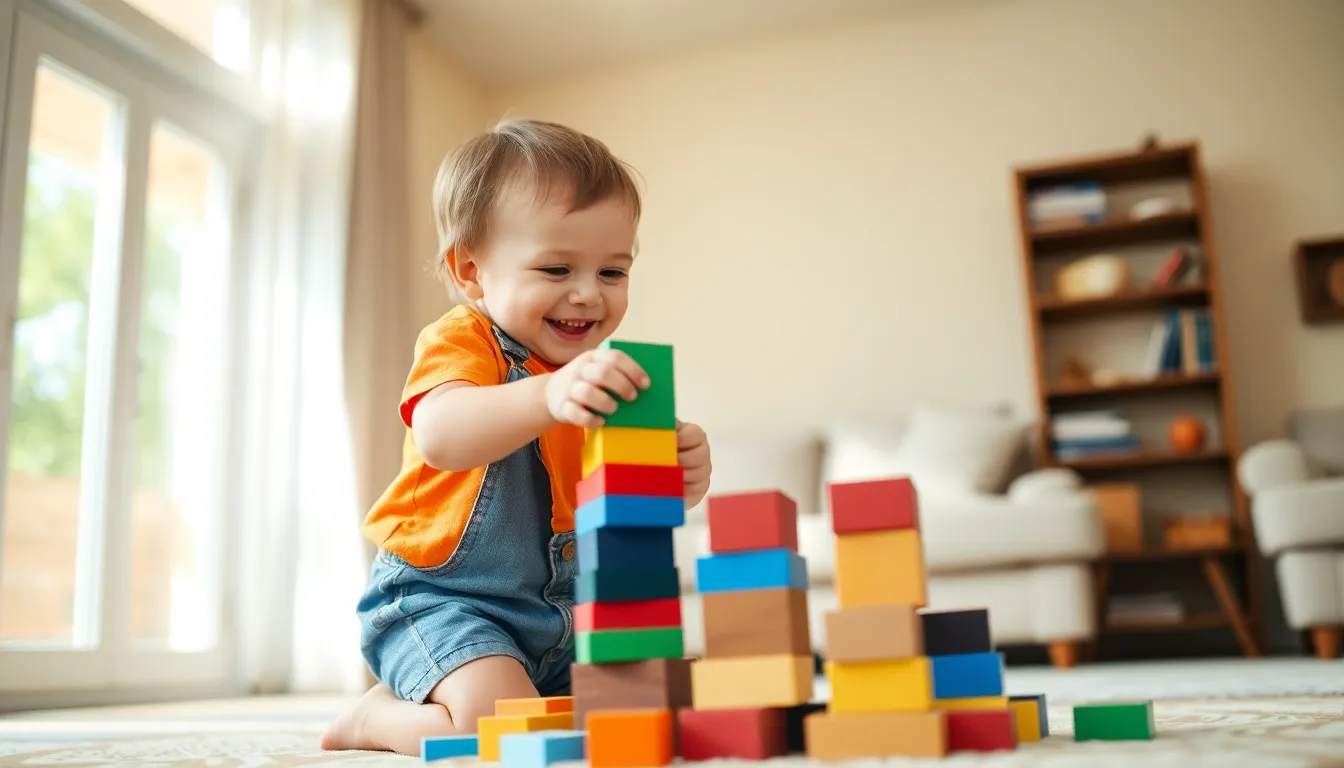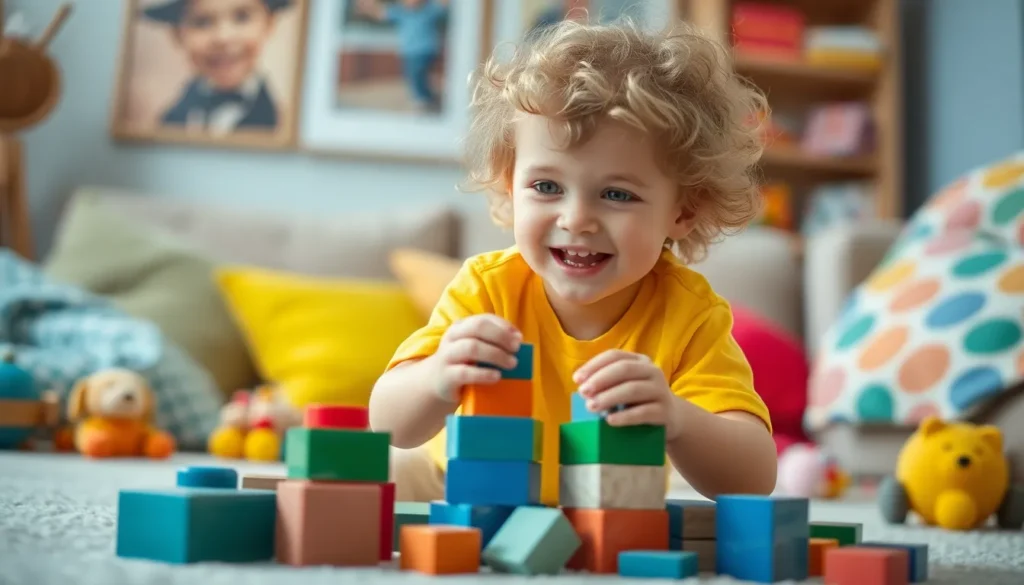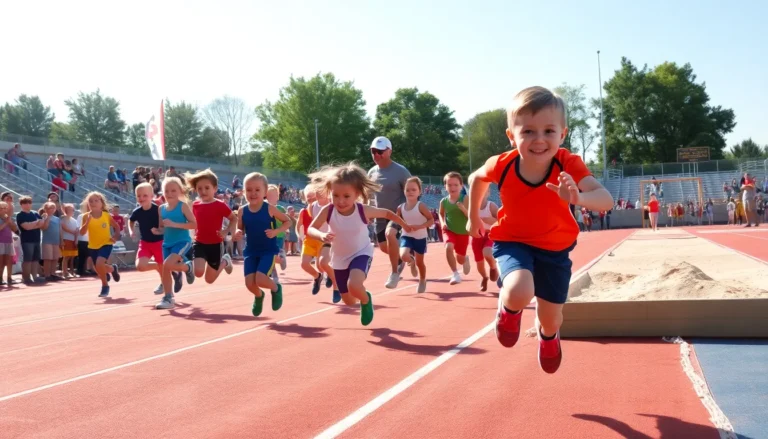Table of Contents
ToggleNavigating the toddler transition can feel like trying to teach a cat to swim—chaotic and slightly absurd. As little ones move from babyhood to a world of big-kid adventures, parents often find themselves in a whirlwind of emotions and challenges. From potty training to saying goodbye to naps, every step can be both a triumph and a test of patience.
Understanding Toddler Transition
Toddler transition refers to the developmental phase where children move from infancy into greater independence. Key changes occur, with milestones such as potty training and reduced naptime significantly impacting daily routines.
What Is Toddler Transition?
Toddler transition signifies a series of developmental shifts experienced between ages one and three. During this time, children develop new skills such as verbal communication and fine motor abilities. Changes also include moving from cribs to beds and adjusting to new social environments, like playgroups or preschools.
Importance of Toddler Transition
Understanding toddler transition is essential for parents and caregivers. Successful navigation of this period fosters independence and self-confidence in children. Acknowledging key milestones helps parents establish routines, manage expectations, and celebrate achievements, even when challenges arise. This development positively influences social skills, laying the foundation for future interactions.
Key Stages of Toddler Transition

Understanding key stages of toddler transition helps parents navigate this developmental phase. Children experience notable growth in various areas during this time.
Physical Development
Motor skills advance significantly between ages one and three. Toddlers gain abilities such as walking, running, and climbing. They refine their coordination through play activities like throwing balls or building with blocks. As they master these skills, physical independence emerges, allowing them to explore their environments more freely. Transitioning from cribs to beds marks another vital milestone. This change can enhance mobility and provide a greater sense of autonomy.
Emotional Development
Emotional growth plays a critical role in toddler transition. Children learn to express their feelings through verbal communication and body language. As they develop a stronger sense of self, they may experience increased independence alongside occasional frustration. Social interactions provide opportunities for toddlers to understand sharing and empathy. They also begin forming attachments to caregivers and peers, helping them feel secure in their relationships. Recognizing and validating emotions fosters resilience and self-confidence in children during this period.
Challenges During Toddler Transition
Toddlers face numerous challenges as they transition into more independent stages. Parents also encounter distinct difficulties during this phase.
Common Issues Parents Face
Sleep disruptions often arise when toddlers change from cribs to beds. Bedtime can become a struggle as children assert their independence, leading to night-waking or refusal to sleep. Potty training also presents its own set of challenges, as accidents can frustrate both parents and children. Social settings, like playgroups, introduce new dynamics that may provoke anxiety or tantrums. Communication barriers add to the complexities, with toddlers unable to express their needs clearly. These factors contribute to a rollercoaster of emotions for parents who navigate both joy and anxiety during this transition.
Tips for Overcoming Challenges
Establishing consistent routines can greatly ease the transition for both toddlers and parents. Implementing clear bedtime rituals promotes a sense of security, making sleep more manageable. Positive reinforcement during potty training boosts confidence and encourages progress. Engaging toddlers in social interactions helps develop coping skills for playdates and group settings. Incorporating simple language allows clearer communication, reducing frustration. Seeking support from other parents can provide valuable insights and encouragement. These strategies help families navigate the transitional challenges effectively.
Supporting Your Toddler Through Transition
Supporting toddlers during their transition involves creating a nurturing environment and fostering their independence.
Creating a Comfortable Environment
Ensure the home feels welcoming and safe. Utilize familiar items like favorite toys or blankets to ease anxiety during changes. Establish a routine that includes set meal times and consistent bedtimes. This predictability helps toddlers feel secure. Decorate their spaces with their interests in mind, such as colorful art or themes they enjoy. Offer gentle reminders as they face new experiences. Maintain open lines of communication to address their feelings and questions, helping them articulate emotions. These efforts create a comforting atmosphere that encourages exploration.
Encouraging Independence
Promote skills that enhance self-sufficiency. Assign small tasks, like picking up toys or helping with simple chores, to boost their confidence. Allow toddlers to make choices, such as selecting outfits or snacks, fostering decision-making skills. Celebrate even minor achievements to encourage further efforts. Provide opportunities for social interactions, such as playdates or group activities, to develop confidence in social settings. Gradually introduce new experiences while offering support. Focus on nurturing autonomy while providing reassurance, helping toddlers navigate the transition with greater ease.
Navigating the toddler transition is a journey filled with both challenges and rewards. Parents play a vital role in supporting their child’s growth during this transformative phase. By fostering independence and creating a nurturing environment, they can help their toddlers thrive. Establishing routines and celebrating small achievements not only builds confidence but also strengthens the parent-child bond. As toddlers explore their newfound skills and emotions, parents should remain patient and understanding. This approach will ease the transition and pave the way for a successful and fulfilling childhood. Embracing this phase with love and support will ultimately lead to a more confident and self-sufficient child.








